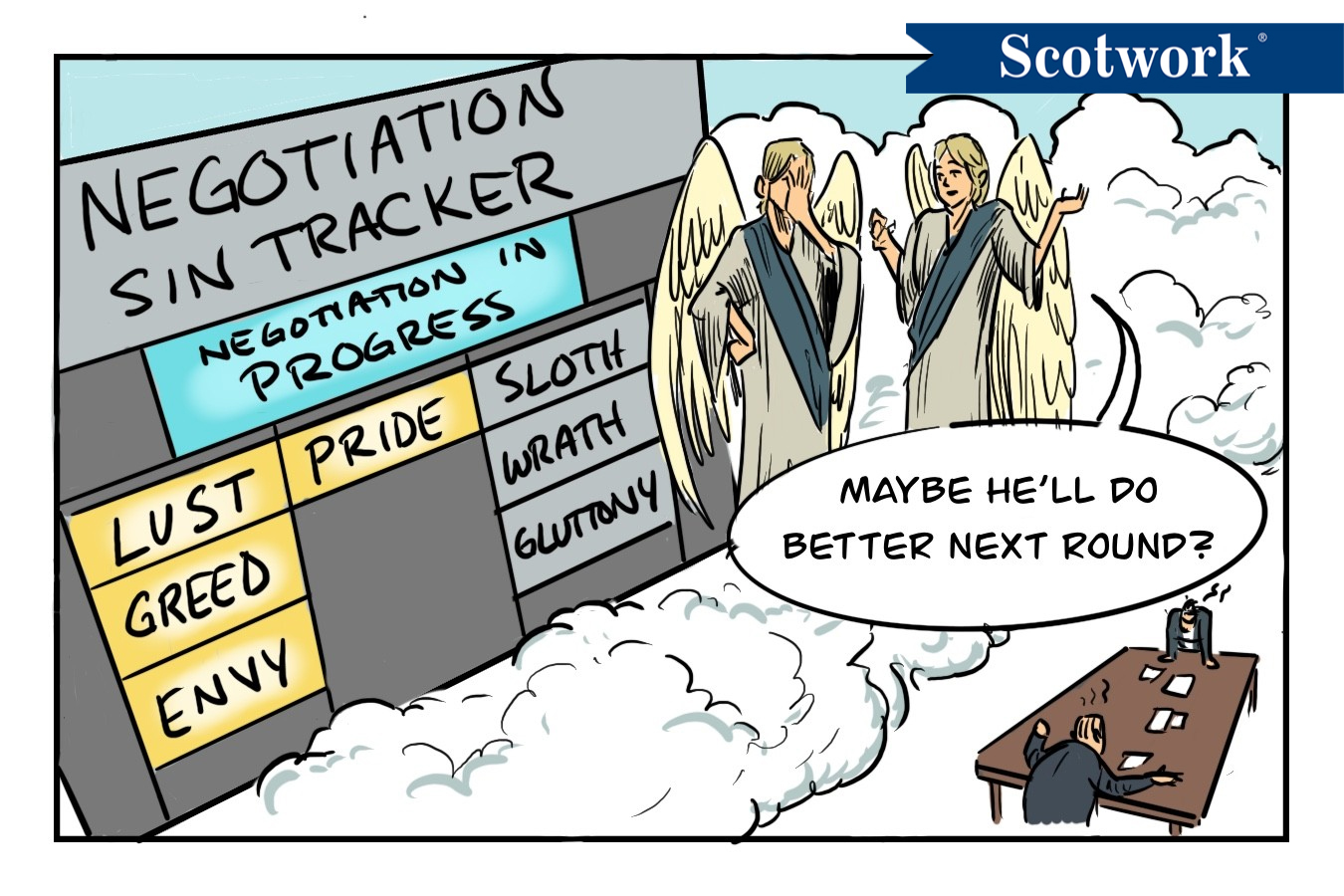With Halloween around the corner and this being contract renewal season, it’s a great time to talk about the seven deadly sins of a negotiator. These are sins that all of us commit from time to time, but depending on your circumstances, they can put your deal in mortal peril.
Pride
In negotiations, excessive pride can manifest as overconfidence or arrogance. A negotiator may believe they hold all the power or that their position is unassailable, leading to inflexibility or dismissiveness toward the other party’s interests. This can result in missed opportunities for collaboration or create unnecessarily competitive talks.
To avoid this sin, park your ego and evaluate your power without bias. Start by looking at what you want out of the negotiation — and what you might want to avoid. Then, put yourself in the other side’s shoes and do the same evaluation. Ask others on your side to help you evaluate the balance of power and test your own assumptions. This will give you a more accurate view of your power and keep your pride in check.
Greed
Greed is the desire for excessive gain or advantage. In negotiations, it can appear as trying to extract too much value from the other party, pushing for terms that are overly beneficial to your side without considering the balance of the deal. This can lead to a breakdown in trust or even the entire deal if the other side feels exploited.
To avoid this sin, keep the negotiation’s outcome top of mind. Even if you find yourself in a position where you can extract far more value than you need, consider that if you’re too greedy, you might be setting yourself up for a difficult long-term relationship or subsequent negotiations. Instead, keep your greed in check by focusing on creating deals that everyone can support.
Envy
In negotiations, envy presents itself as focusing excessively on what the other party’s getting rather than what you need or want. If negotiators are more concerned with ensuring the other party doesn’t get too much, they may make decisions based on spite or resentment rather than working toward a mutually beneficial agreement.
To avoid this sin, define the purpose of the negotiation. This can help mitigate feelings of envy. Clarifying desired outcomes and issues can help, but a broader view of why you’re at the negotiating table can ground your talks in something more meaningful than just a tally sheet of wins or losses.
Lust
In negotiations, lust can be seen as a yearning for something desirable that clouds judgment. A negotiator may focus excessively on winning a particular concession or prize, while ignoring broader or long-term goals. This can lead to agreeing to unfavorable terms or missing more advantageous outcomes.
To avoid this sin, define your desired outcomes clearly. Know what a good deal looks like and specify your limits. That way, when tempting opportunities arise during the course of a negotiation, you can evaluate their value in comparison to the desired outcomes. This will help you stay focused on your needs and not get sidetracked by immediate gratifications.
These are the first four deadly sins of a negotiator. I’ll explore wrath, gluttony, and sloth in my next post. In the meantime, remember this: These sins are easy traps to fall into, but they can be avoided if you’re purposeful and mindful during your negotiation. Avoiding these sins allows you to reap the benefits of creating valuable deals in less time while strengthening relationships with the other side.
We Can Help You Avoid the Negotiator’s Seven Deadly Sins.
By sidestepping these sins, you can create valuable deals in less time while strengthening relationships with the other side. Rely on Scotwork’s nearly 50 years of experience to develop truly glorious deals.

